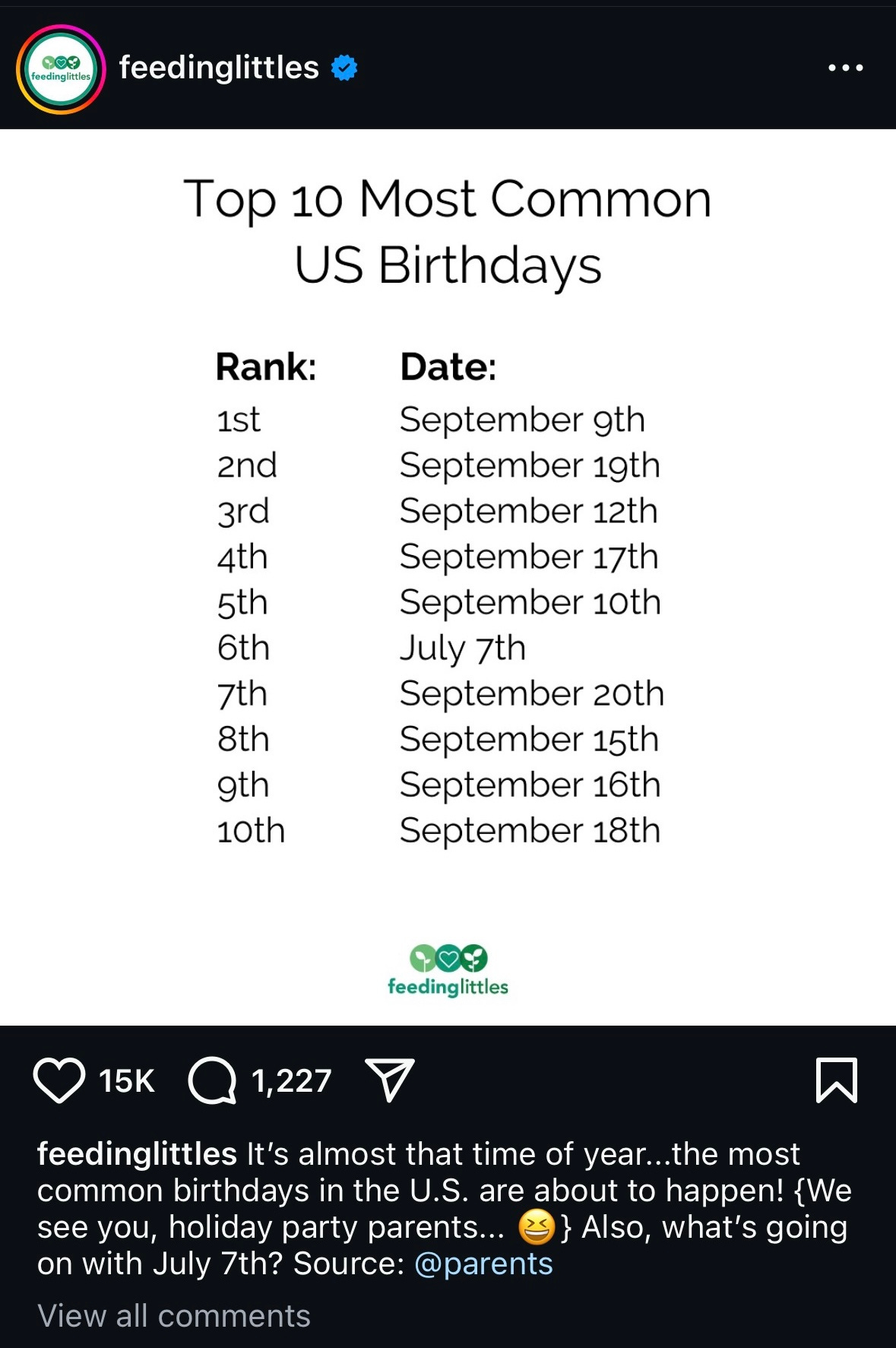NBA stars are born in September
Sept 9 is the most common birthday in the United States. It's a big one for NBA players, too. What's going on?
Happy Birthday, Shane Battier! Yes, the No-Stats All-Star was born on September 9th.
And while we’re at it ...
Happy Birthday, J.R. Smith!
And Thunder Dan Majerle!
And B.J. Armstrong!
And Hall of Famer Walter Davis!
And Luc Mbah A Moute!
And …
Wait, there are more? Turns out, there are a lot more.
According to Basketball Reference, there are actually 21 current/former NBA players born today. Which is a lot. Some days only have four NBA players born on that particular square on the calendar. And it’s not February 29th. It’s December 29th. And September 9th has five times as many!
If you dig into the data, today ranks as one of the most popular NBA birthdays of the year. Actually, September 19th boasts 25 players including C.J. McCollum and Trae Young. Same with September 21st (including not one but two Hall of Famers, Sidney Moncrief and Artis Gilmore).
Expand the horizon and we find that September is one of the most popular months of the year for NBA players to enter into the world, which tracks with the overall population. How do I know that?
Last week, my wife and I nudged me as we sat on the couch watching Jeopardy. She showed me something she saw on her Instagram feed. If you’re like me, 98 percent of the time this happens it’s because she came across a funny meme about parenthood/marriage that she just has to show me because omg that’s soo us.
This time, though, it was something totally different. A crazy stat. A stat that inspired me to write this piece.
The post showed that of the Top 10 most popular birthdays in the United STate, nine of them are in the month of September. This generated a genuine “WHAT!” out of my gullet despite the fact that, of my two kids, one was born in, yup, September.
This was the chart my wife showed me:
Which means today is the most common birthday in the country!
I didn’t know how scientifically accurate this is, but a quick search on the Internet shows that this is roughly true. At least we’re in the same ballpark.
Here’s the funny thing: when I reached out to Battier over the weekend to wish him a happy pre-birthday, he sent me that SAME graphic.
“I’m not alone!” he texted me.
So of course, my wife and I started debating why the hell this might be. My initial thought was to work backward and count nine months prior and think about what’s happening then.
Oh, yeah. The holidays. Cold. Inside. Off work. Booze. Put it all together: people like to get busy riiiiight around nine months before September.
After thinking about it, it made some sense. It’s not totally random!
It also made me think about the foundational Malcolm Gladwell chapter in Outliers about how elite Canadian hockey players are more likely to be born in early calendar months because age cutoffs meant that they were the oldest people in the athletic class. The older you are, the earlier you tend to be bigger, faster and stronger than your peers and those kids would be selected to be better athletes or perceived to be better athletes as a result … and were thus more likely to go down the sports path.
Put simply, older kids received a developmental head start.
This phenomenon, also known as the relative age effect (RAE), has been studied quite a bit since Outliers was published in 2008, and after some scrutiny, newer research isn’t so sure about Gladwell’s findings. While it’s true that more NHL players were born in the first half of the year, the best hockey players were disproportionately born in the latter half of the year, according to a 2011 study. This supports the underdog hypothesis that younger kids playing with older kids actually benefit from the tougher competition and may have latent, untapped potential. They just might be late-bloomers.
Over at FiveThirtyEight, Tim Wigmore summarized it like this:
This is the paradox of the underdog effect: It is much harder for athletes born later in a selection year to become professional athletes. But if they can make it there, they have a greater chance of reaching the pinnacle of their sport.
Fascinating! I wanted to find out: Is this true in the NBA?



